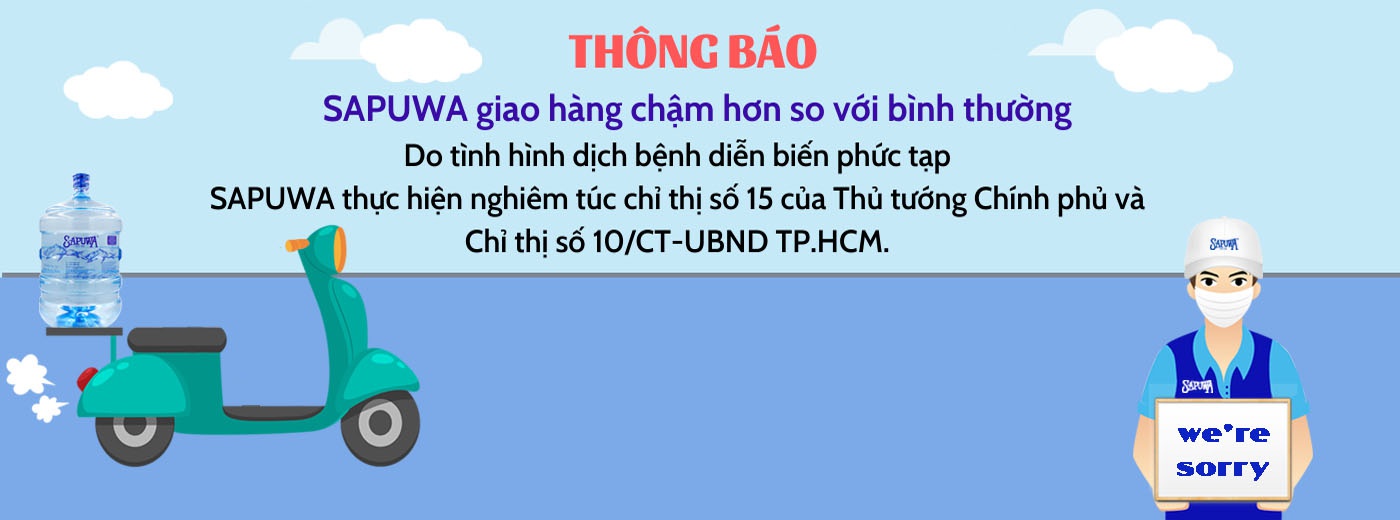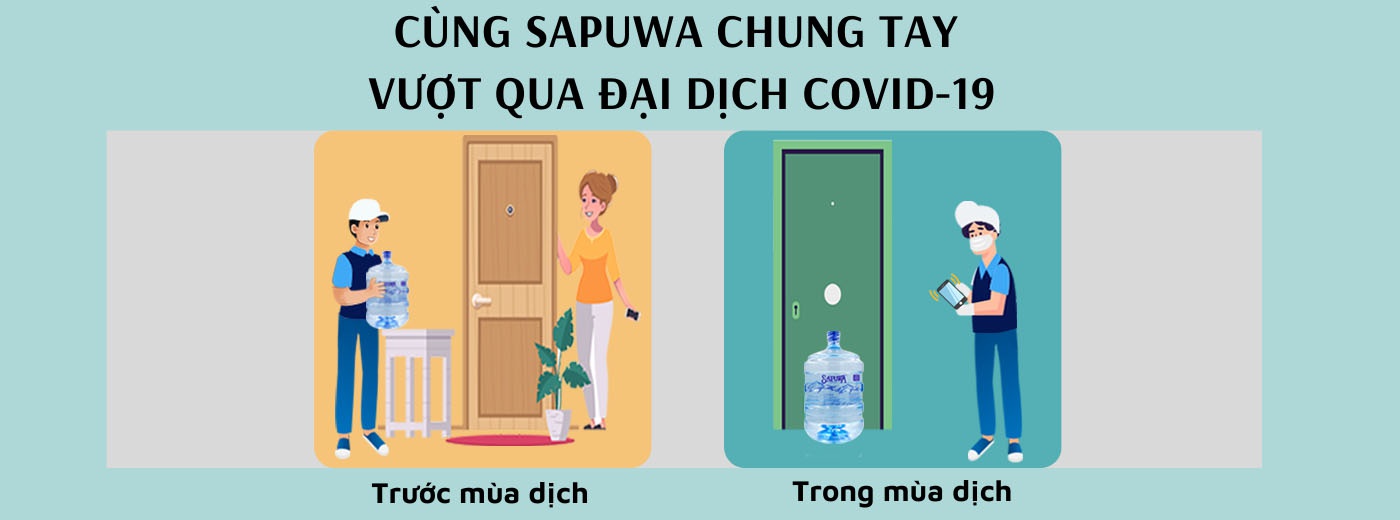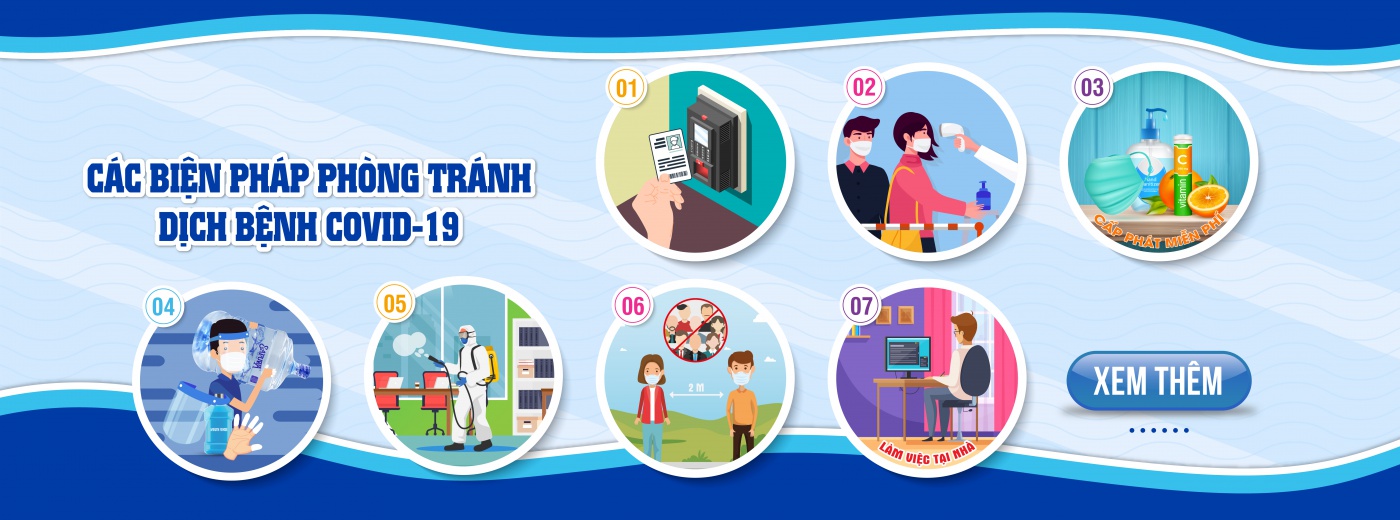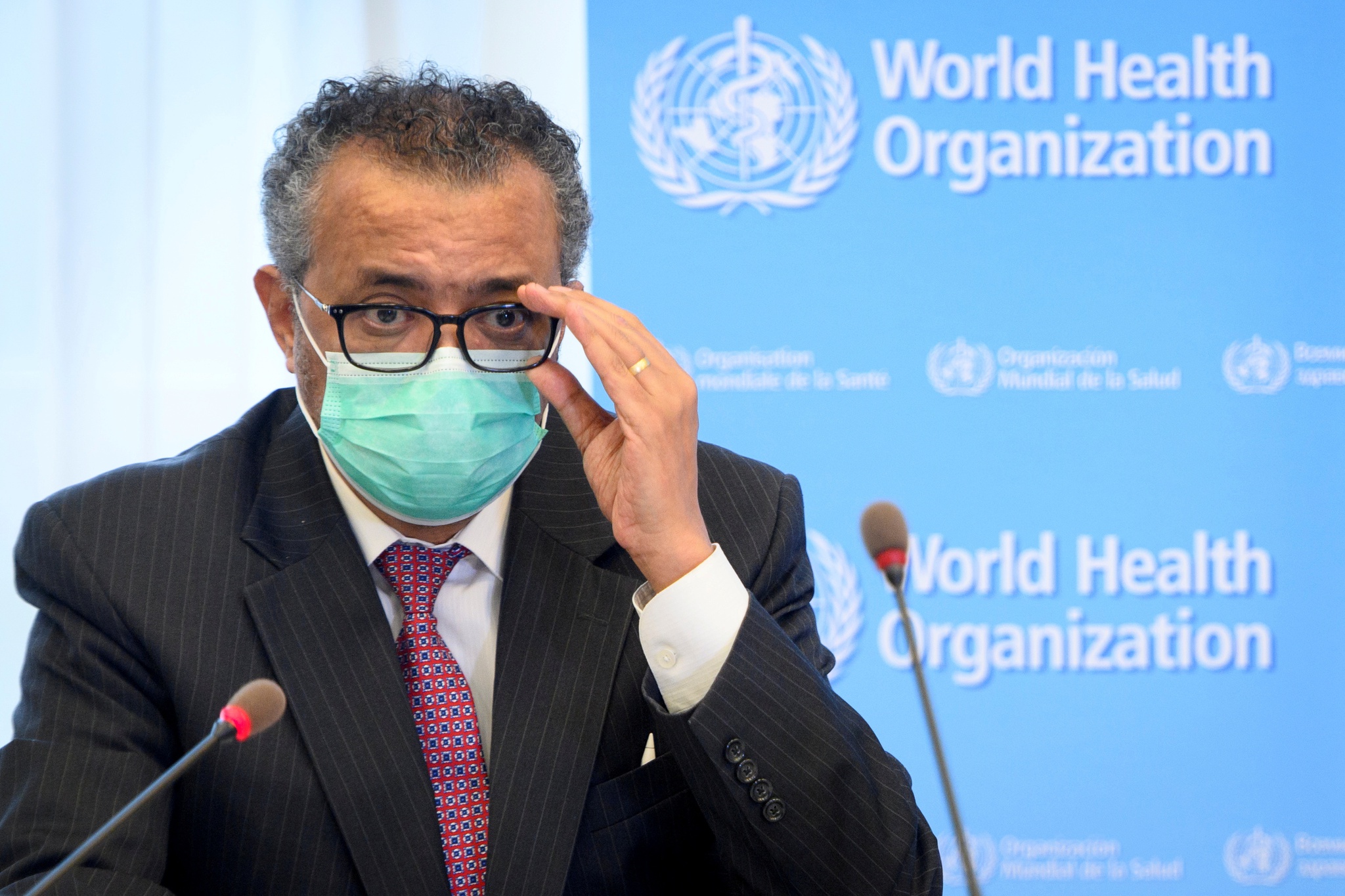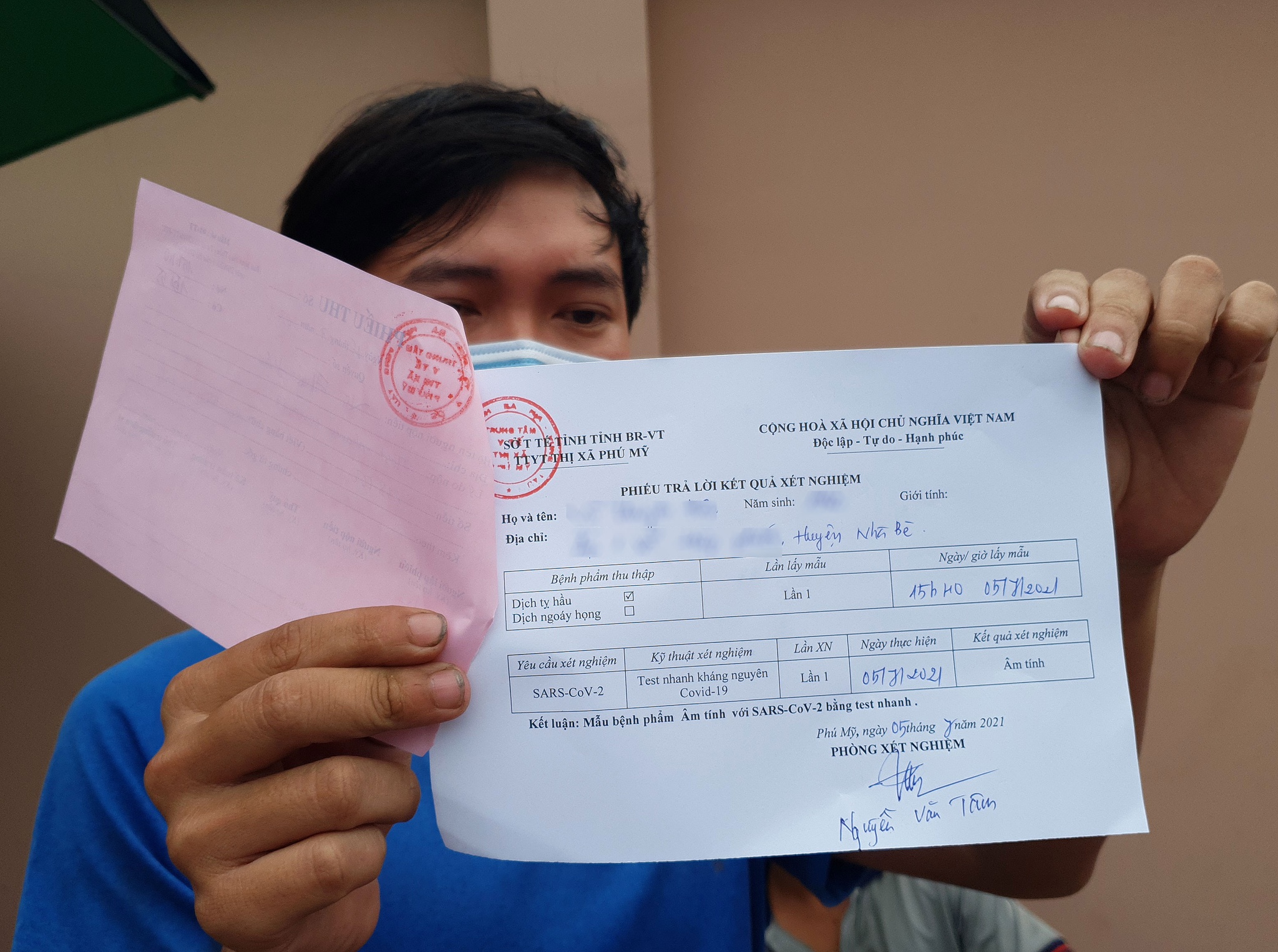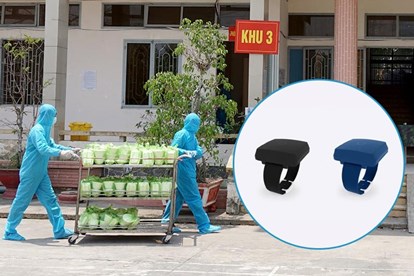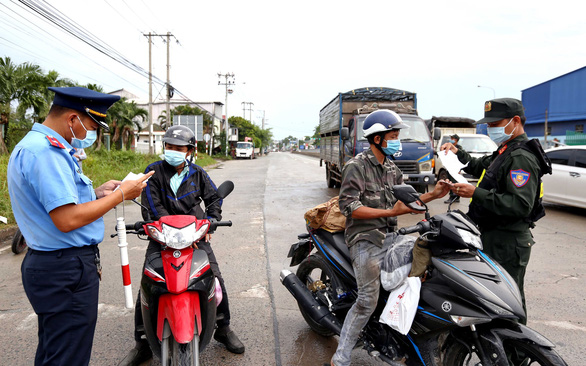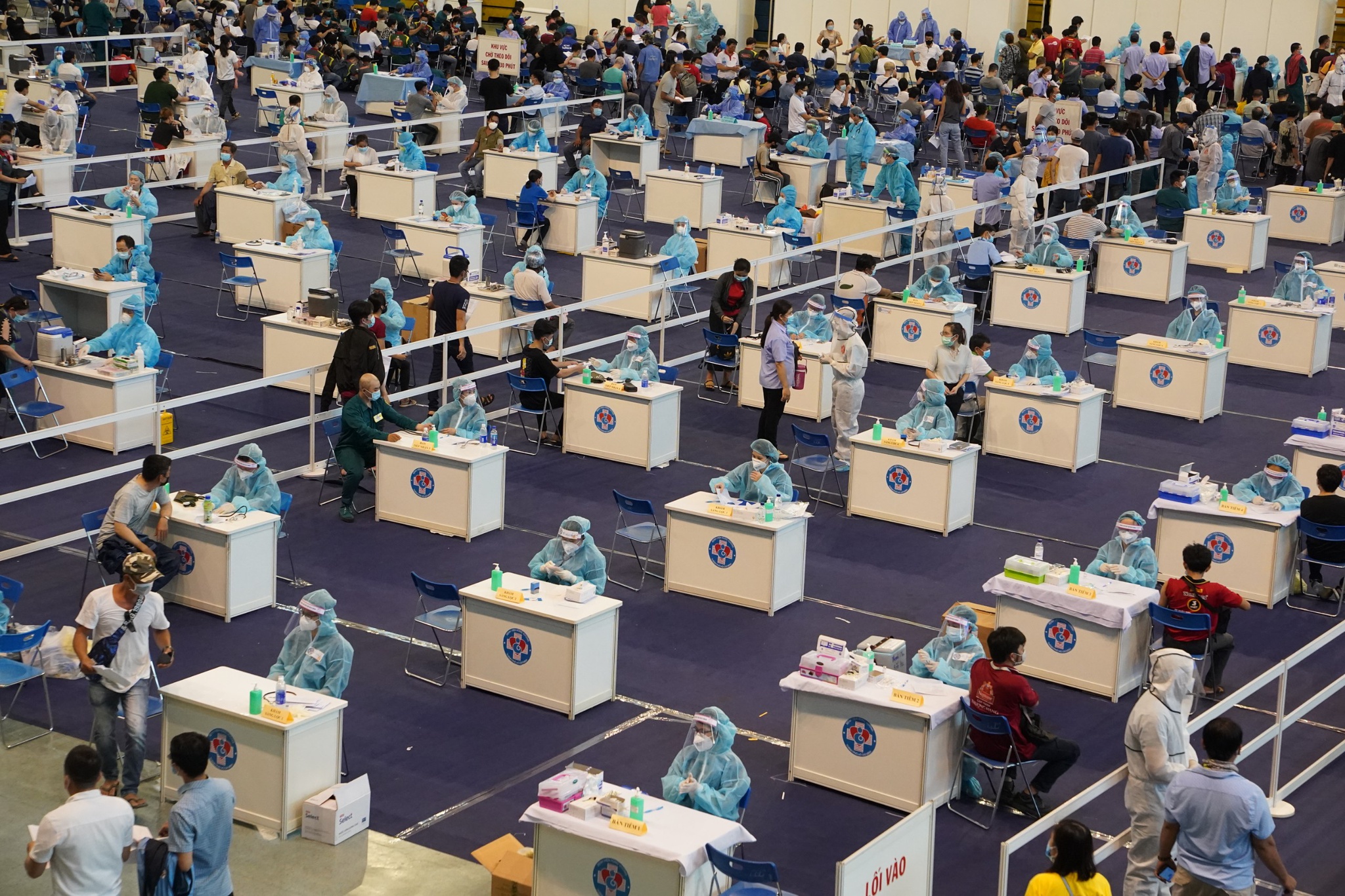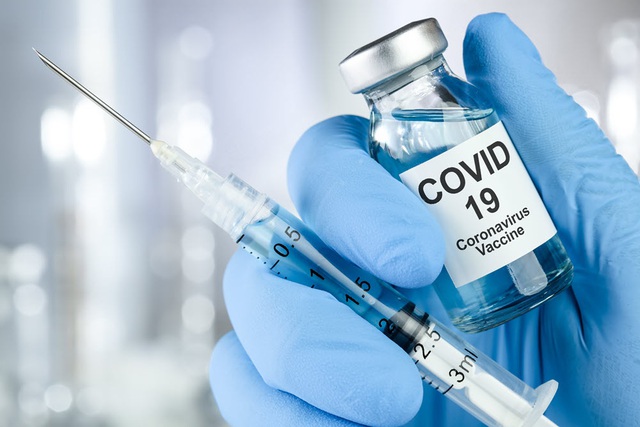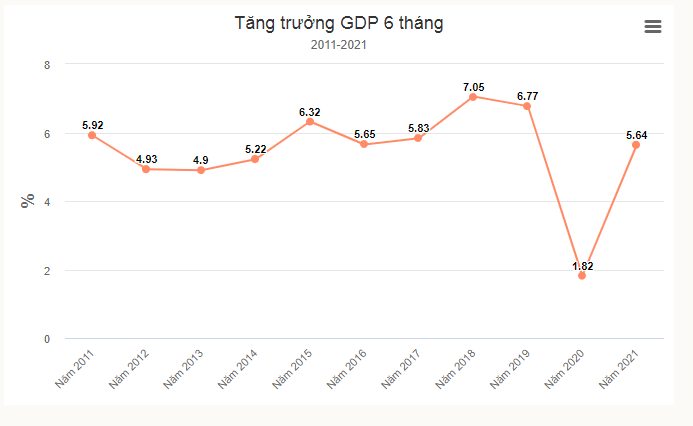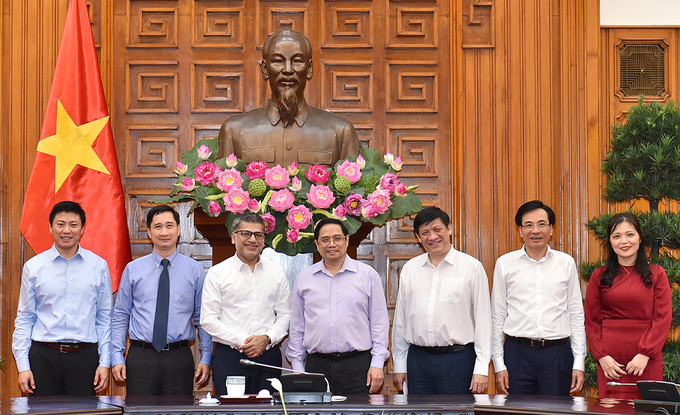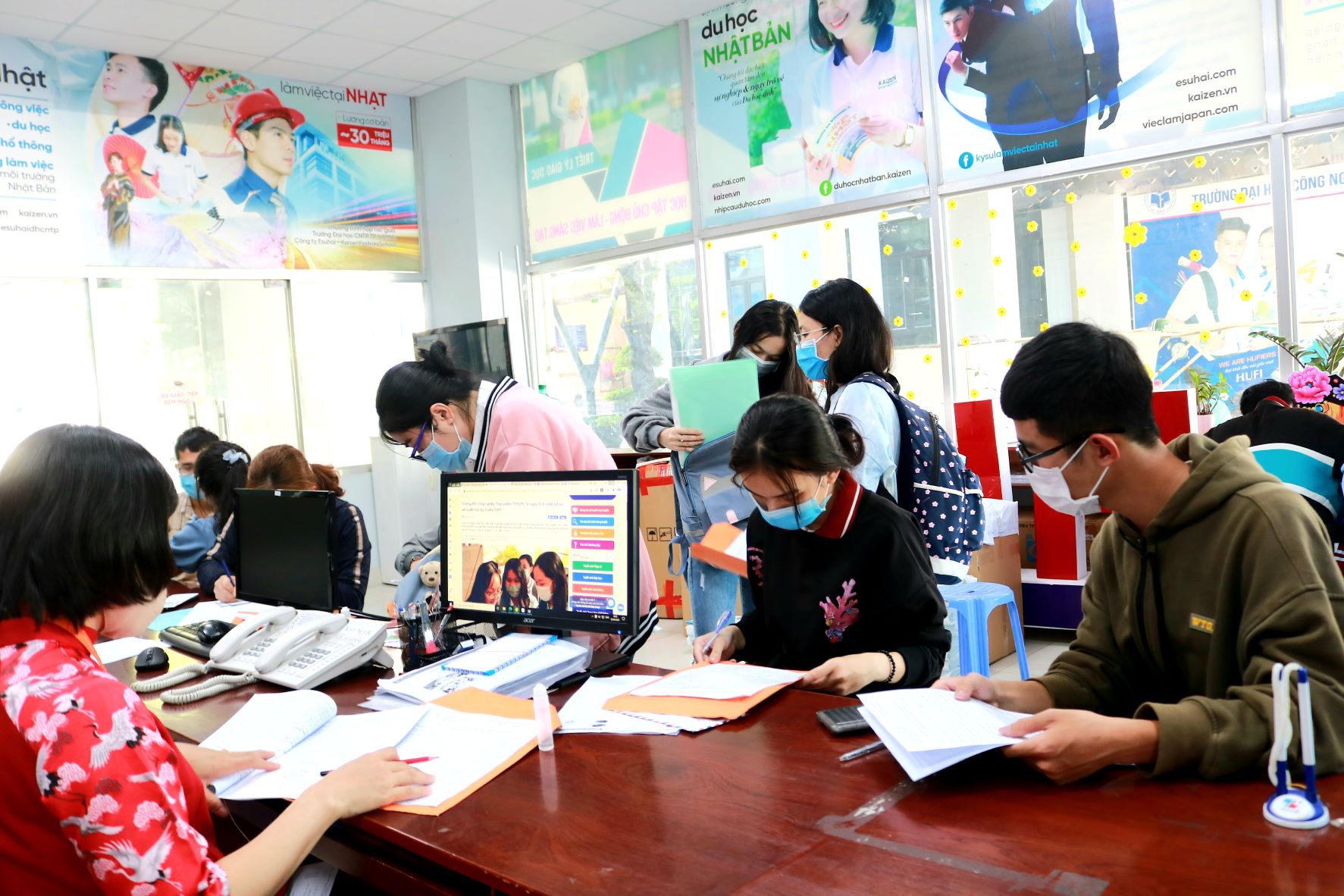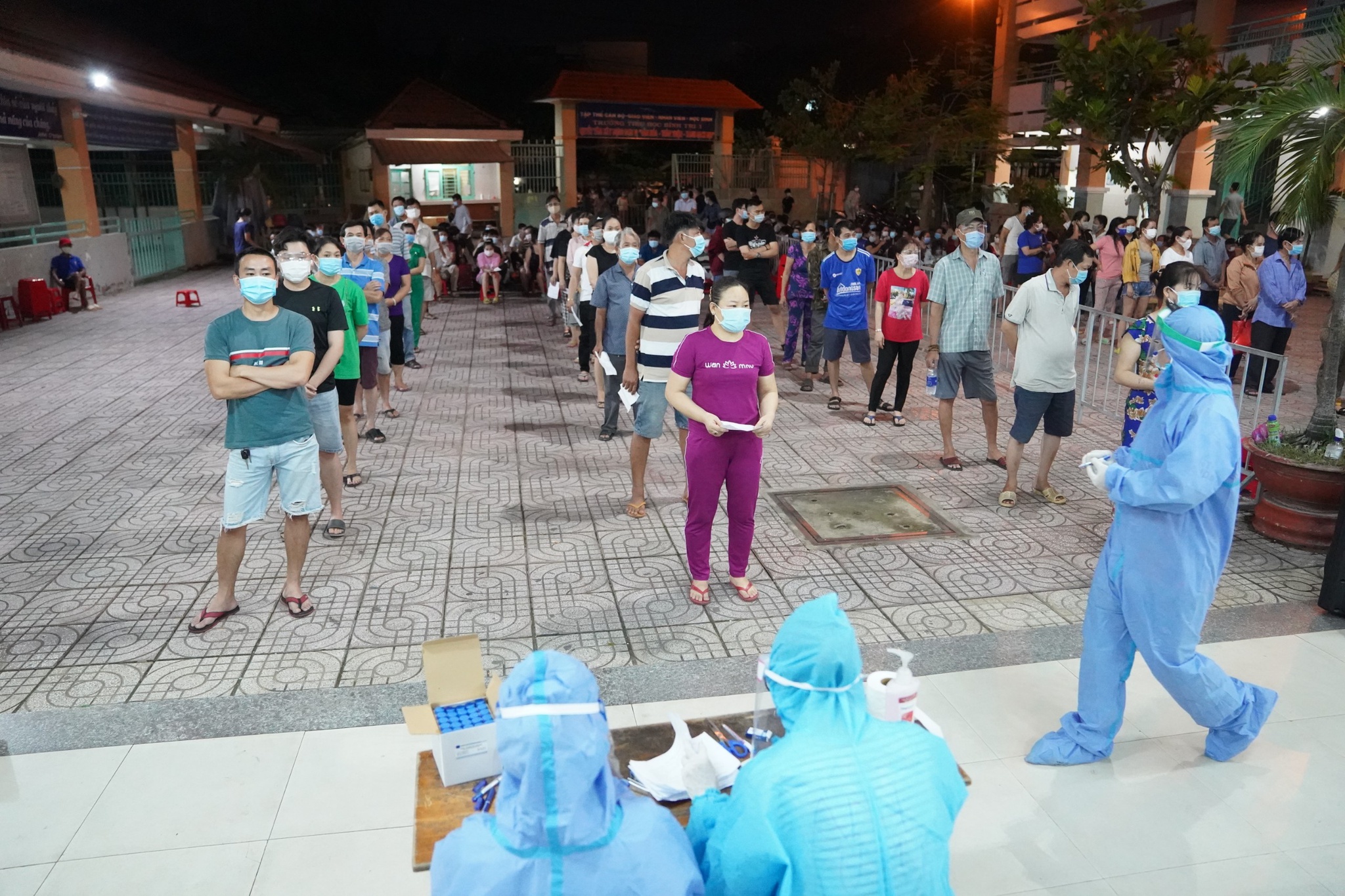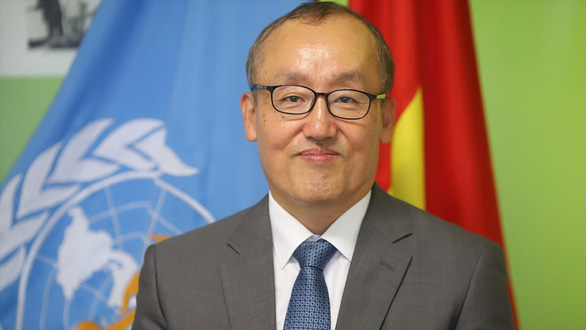THÔNG TIN SƯU TẦM

UNICEF leads the world's largest operation of procurement and supply of COVID-19 vaccines
Carriers are also responsibe for sending flight plans 12 hours before the departure time and lists of passengers 30 minutes before scheduled takeoff to the airport authorities. Passengers in transit to Vietnam from a third country must be allocated on a different seat.
According to requirments for prevention and control of infections issued by the Ministry of Transport, CAAV will cooperate with the minitry’s Transport Health Service Administration to implement preventive and security measures on international flights.
In addition, CAAV and the Ministry of Foreign Affairs must announce requirements on individuals permitted to enter Vietnam to partner countries, including China, Japan, South Korea, Taiwan (China), Cambodia, Laos.
The passengers are required to have a certificate of a negative COVID-19 RT-PCR test result; install the app for health status declaration, Ncovi; and take a measurement of body temperature.
Airport authorities in the North, Central and South have been asked to cooperate with relevant units to receive, check health situation and bring passengers to isolation areas.
According to the Conclusion of Deputy Prime Minister Pham Binh Minh at the Notice 330/TB-VPCP by Government Office dated September 15, carriers are allowed to resume regular international passenger flights connecting Vietnam and some partner countries, starting on September 15.
The operational routes include Vietnam- Guangzhou (China)/ Tokyo (Japan)/ Seoul (the Republic of Korea)/ Taiwan (China) from September 15; Vietnam - Phnom Penh (Cambodia)/ Vientiane (Laos) from September 22.
Maximum permissible number of flights does not exceed 2 per week on each route. Additional flights will be provided depending on the situation and travel demand.
Passengers entering Vietnam from the six above-mentioned partner countries (excluding people who transit from a third country) include holders of diplomatic and official passport and their relatives; specialists, investors, business managers, high-tech workers and their family members; international students; foreigners who are family members of Vietnamese citizens.
Passengers arriving are required to have a certificate of a negative SARS-CoV-2 RT-PCR test result issued within three days prior to departure; take RT-PCR tests immediately upon arrival at the quarantine facility; enter isolation areas in accordance with regulations.
Deputy Prime Minister Pham Binh Minh also asked the Ministry of Public Security and Ministry of Foreign Affairs to shorten visa granting process within 3 days; the Ministry of Transport and CAAV to adjust ticketing process, including requiring travelers to provide entry permit or visa, the address of where they will be staying in Vietnam before selling tickets, and present negative COVID-19 test results.UNICEF is leading efforts to procure and supply COVID-19 vaccines in what could possibly be the world’s largest and fastest ever procurement and supply of vaccines, as part of the global vaccine plan of the COVID-19 Vaccine Global Access Facility (COVAX Facility) led by Gavi, the Vaccine Alliance.
With several vaccine candidates showing promise, UNICEF, in collaboration with the PAHO Revolving Fund, will lead efforts to procure and supply doses of COVID-19 vaccines on behalf of the COVAX Facility for 92 low- and lower middle-income countries whose vaccine purchases will be supported by the mechanism through the Gavi COVAX AMC as well as a buffer stockpile for humanitarian emergencies. In addition, UNICEF will also serve as procurement coordinator to support procurement by 80 higher-income economies, which have expressed their intent to participate in the COVAX Facility and would finance the vaccines from their own public finance budgets.
UNICEF will undertake these efforts in close collaboration with WHO, Gavi, CEPI, PAHO, World Bank, the Bill and Melinda Gates Foundation and other partners. The COVAX Facility is open to all countries to ensure that no country is left without access to a future COVID-19 vaccine.
“This is an all-hands on deck partnership between governments, manufacturers and multilateral partners to continue the high-stakes fight against the COVID-19 pandemic,” said Henrietta Fore, UNICEF Executive Director. “In our collective pursuit of a vaccine, UNICEF is leveraging its unique strengths in vaccine supply to make sure that all countries have safe, fast and equitable access to the initial doses when they are available.”
According to UNICEF Viet Nam Representative, Rana Flowers, Viet Nam has expressed interest in the COVAX Facility, and the country is eligible to apply for participation in the COVAX Advance Market Commitment (AMC). UNICEF, together with WHO and relevant development partners, will continue to support Viet Nam in this critical preparatory work – from cold chain inventories to delivery logistics plans for vaccine readiness of the country.
UNICEF is the largest single vaccine buyer in the world, procuring more than 2 billion doses of vaccines annually for routine immunization and outbreak response on behalf of nearly 100 countries. It is the main procurement partner of Gavi, the Vaccine Alliance, which over the last 20 years has reached more than 760 million children with life-saving vaccines, preventing more than 13 million deaths. UNICEF will use its market shaping and procurement expertise to coordinate the procurement and supply of COVID-19 vaccines for the COVAX Facility. This could potentially double the agency’s overall vaccine procurement throughput volume in 2021 alone.
In response to an expression of interest that UNICEF issued in June on behalf of the COVAX Facility, 28 manufacturers with production facilities in 10 countries shared their annual production plans for COVID-19 vaccines through 2023. According to the timelines the manufacturers indicated, the span from development to production could be one of the fastest scientific and manufacturing leaps in history.
A UNICEF market assessment, developed by compiling information submitted by vaccine manufacturers along with publicly available data, revealed that manufacturers are willing to collectively produce unprecedented quantities of vaccines over the coming 1-2 years. However, manufacturers signaled that investments to support such large-scale production of doses would be highly dependent on, among other things, whether clinical trials are successful, advance purchase agreements are put in place, funding is confirmed, and regulatory and registration pathways are streamlined.
This assessment also illustrates, among other things, manufacturers’ responsiveness to the COVAX Facility’s design and objectives—a key pillar of the ACT-Accelerator initiative, which is a new, groundbreaking global collaboration to accelerate the development and equitable distribution of vaccines, diagnostics and therapeutics to address the COVID-19 pandemic across countries of all income levels.
A key next step will be ensuring self-financing economies sign up for the COVAX Facility by 18 September, which will allow COVAX to support early, at-risk investments in increasing manufacturing capacity on a broad scale, through advance purchase agreements.
Currently under development by WHO, the COVAX allocation framework will guide how and where UNICEF, PAHO and other procurers working on behalf of participating countries supply COVID-19 vaccines that are secured by the Facility. Initial dose allocations are expected to be scaled to enable countries to vaccinate health and social workers, followed by subsequent tranches of vaccine doses that would enable participating countries to vaccinate populations at higher risk of critical COVID-19 disease.
“UNICEF has been critical partner in the Alliance’s success over the last two decades – helping us reach more than half the world’s population with life-saving vaccines,” said Dr. Seth Berkley, CEO of Gavi. “This expertise and experience will be important in ensuring that COVAX – as a global effort to procure and deliver safe and effective COVID-19 vaccines, on an accelerated timeframe, and at an unprecedented scale – can protect the most at-risk, wherever they may be in the world. Together we can work to end the acute stage of this pandemic, including its devastating impact on individuals, communities, and economies.”
UNICEF, Gavi, WHO, and PAHO have started critical preparatory work for country vaccine readiness in collaboration with partners and national governments including:
- Working with device manufacturers to plan availability of safe injection equipment and cold chain requirements for the vaccine;
- Developing guidance with WHO and trainings to support vaccination policies and appropriate handling, store and distribution of the vaccines;
- Working with manufacturers on freight and logistics solutions to get vaccine doses to countries as quickly and safely as possible once they are allocated;
- Supporting countries in planning for vaccine delivery, including targeting those most at risk and transport and storage at point of service delivery;
- Ramping up efforts with civil society and other local partners to ensure that people are well-informed about the COVID-19 vaccination process and putting measures in place to enhance trust and tackle misinformation about COVID-19 vaccines.
Source: unicef.org
Collected by My Nguyen
Tổng giám đốc WHO: Chưa thể loại trừ khả năng Covid-19 rò rỉ...
Người đứng đầu Tổ chức Y tế Thế giới (WHO) ngày 15.7 cho biết vẫn còn quá...
Một tuần đi qua
Vậy là đã qua được một tuần cách ly toàn TP.HCM theo chỉ thị 16
Khổ vì giấy xét nghiệm Covid-19
Ngày 5.7, tại cuộc họp trực tuyến của Ban Chỉ đạo quốc gia phòng, chống...
TP.HCM đề xuất giám sát người cách ly tại nhà bằng thiết bị...
Sở Thông tin và truyền thông TP.HCM vừa có văn bản đề xuất UBND TP.HCM về...
Không 'đóng cửa' nhưng sẽ kiểm soát chặt chẽ người ra vào...
TP.HCM không đóng cửa hay phong tỏa nhưng sẽ kiểm soát chặt chẽ người ra vào...
TP.HCM: Chiến dịch tiêm 836.000 liều vắc xin Covid-19 kết thúc hôm...
Tính đến hết ngày 29.6, TP.HCM đã tiêm trên 805.000 liều vắc xin Covid-19 trong...
Tại sao 'gánh' dịch, kinh tế vẫn tăng trưởng gấp ba cùng kỳ
Con số GDP 6 tháng tăng 5,64% khiến giới phân tích bất ngờ bởi 2 quý vừa qua,...
Đề nghị Astra Zeneca chuyển cho Việt Nam 10 triệu liều vaccine
Lãnh đạo Chính phủ đề nghị Công ty AstraZeneca tạo mọi điều kiện thuận...
Dịch Covid-19 lan mạnh: Không thi mà xét tốt nghiệp, trường ĐH...
Trước những mong muốn của thí sinh, phụ huynh tổ chức xét tốt nghiệp thay vì...
Dịch vẫn lan nhanh, TP.HCM cần thêm 'thuốc mới'?
Số ca nhiễm tại TP.HCM vẫn tăng lên, ở mức 3 con số mỗi ngày, dù đa số ở...
Trưởng đại diện WHO tại Việt Nam: Người dân TP.HCM hãy tuân...
Theo TS Kidong Park, vai trò của vắc xin trong việc kiểm soát ổ dịch cấp tính còn...
344567942350826358571066.jpg&w=1400&h=520)
522608805487.jpg&w=1400&h=520)
